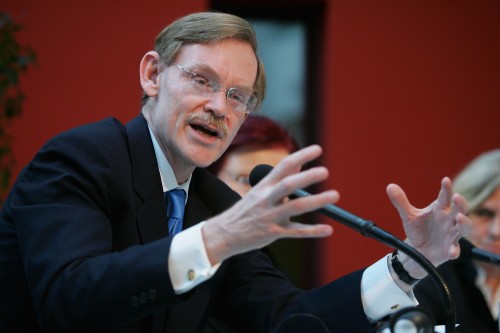 In 2008, banks in the Central Africa region had an estimated 7,000 billion CFAF of excess liquidity, 1,700 billion francs CFA in Cameroon, indicated the French language daily Mutations last Tuesday. A situation which, according to experts, will be amplified due to the difficulty in access to credit and financing of the economy affecting the private sector as a whole, and more so small and medium enterprises (SME).
In 2008, banks in the Central Africa region had an estimated 7,000 billion CFAF of excess liquidity, 1,700 billion francs CFA in Cameroon, indicated the French language daily Mutations last Tuesday. A situation which, according to experts, will be amplified due to the difficulty in access to credit and financing of the economy affecting the private sector as a whole, and more so small and medium enterprises (SME).
Last June in Douala during a press conference, Fabrice Kom Tchuenté, Executive Director of Fin Afrique Consultancy, said the excess liquidity in Central Africa in general and Cameroon in particular was alarming.
Even if some owners fail to explain the paradox of excess liquidity and the absence or paucity of funding, the fact remains that banks are reluctant within CEMAC to grant loans to SMEs.
But faced with this irony, Robert Zoelick of the World Bank proposes the creation of a sovereign fund that would allow the continent’s economies to grow more easily. "Equity investments are more sustainable in the long term unlike debt,” states the World Bank expert.
Otherwise, creating a Diaspora investment bank would minimize transfer costs; each year, Africa receives, 2,200 billion CFAF in remittances. An initiative which according to the former official of the African Development Bank, could promote “bancarization” of remittances and would also contribute to the provision of integrated services to senders and receivers of remittances, such as savings accounts, credits and mortgages (microfinance).
"We can learn from Islamic banking, ie granting a loan with interest is prohibited. It may also be important to be interested in the profitability and social character of the project before any funding. It is a method of financing that is not yet practiced in Cameroon,” thinks Fabrice Tchuenté Kom as an alternative.
Also, according to the expert, the other method of funding that could be applied in Cameroon is the private equity investment. “This is a method of financing that permits a company to be funded and supported. And after several years, the bank may withdraw and allow the company to be independent.”
Next November, a forum will be held in Douala, economic capital of Cameroon on this issue.


